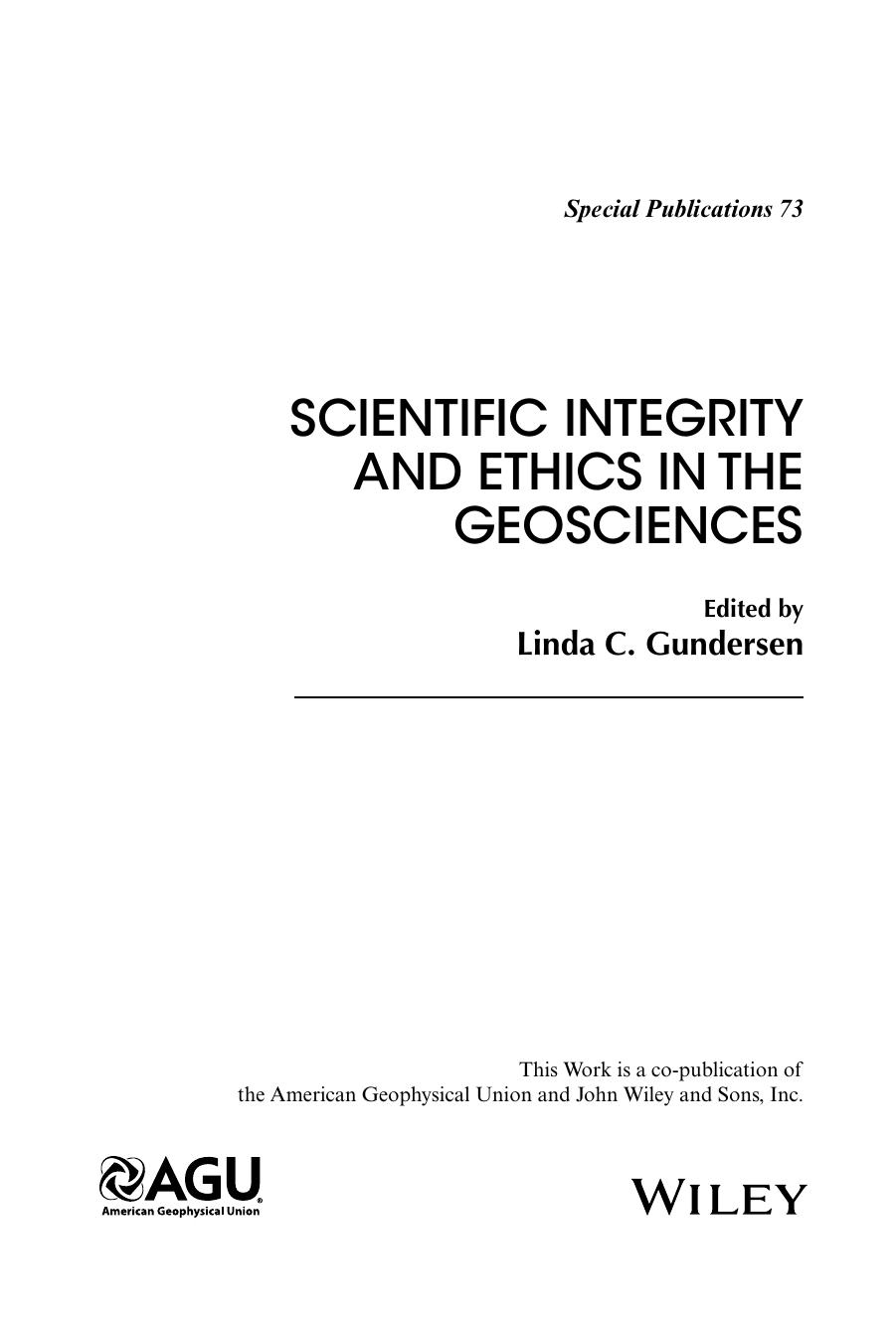Scientific Integrity and Ethics in the Geosciences by Linda C. Gundersen

Author:Linda C. Gundersen [Gundersen, Linda C.]
Language: eng
Format: epub, pdf
ISBN: 9781119067689
Publisher: John Wiley & Sons, Inc.
Published: 2017-11-29T00:00:00+00:00
The NSF Proposal and Award Policies and Procedures Guide [2013] includes the explanation that attention to broader impacts is an essential component of a funding application in that the “NSF values the advancement of scientific knowledge and activities that contribute to societally relevant outcomes” (13‐1, II‐9). The NSF Broader Impacts criterion is a useful frame for thinking about the impacts of science on society; however, it is important to consider not only the benefits but also the risks of proposed research. In other words, the broader impacts criterion as the NSF envisioned it is designed to provide an opportunity for scientists and engineers to examine how their research impacts society, and provides an occasion to consider who benefits from such research (and who does not) and who or what might be harmed by such research (and who or what will not). That is, it provides the occasion for scientists to consider ethical values linked to the justice impacts of their research.
Coupled ethical‐epistemic analyses relevant to broader impacts raise value questions in at least two ways. First, ethical values are involved in consideration of which benefits are most desirable as well as which harms are to be avoided. Second, researchers should analyze how the benefits (or harms) of the research will and should be distributed across sectors of society; that is, they should consider questions of distributive justice as well as, at least in some instances, issues of environmental justice. While it is certainly not the case that scientists have control over how the products of their research will be deployed once they are available to the public, this type of broader impact concern is often relevant to avenues 1 and 4 listed in section 10.1.
To briefly illustrate this linkage regarding the first category, that is, that these issues can be relevant to choosing and framing a research problem, consider two choices of emphasis relevant to climate science research: (a) Is the focus of the research on slow‐onset impacts from climate change or on more abrupt changes? (b) Does the model focus primarily on nonlinearities in the physical system and ignore or minimize nonlinearities in the social system? [cf. Moser, 2005]. In both areas, choice of emphasis or even how to balance these disparate foci will have broader impacts on what is and is not known relevant to adaptation and mitigation choices.
Working in the domain of decision‐support science provides a clear example of the fourth category, namely, how coupled ethical‐epistemic issues arise in the application and communication of scientific information in the service of decision support. I will briefly examine the issue of communication of results and then turn to decision‐support science.
How scientists communicate the results and limitations of their research to the public is an obvious instance of a coupled ethical‐epistemic issue. To demonstrate how epistemic values can be coupled to ethical values, consider again the previous discussion of the decision, based on epistemic values, to exclude ice dynamic data from the West Antarctic Ice Sheet in sea level rise models in the IPCC Fourth Assessment Report [Solomon et al.
Download
Scientific Integrity and Ethics in the Geosciences by Linda C. Gundersen.pdf
This site does not store any files on its server. We only index and link to content provided by other sites. Please contact the content providers to delete copyright contents if any and email us, we'll remove relevant links or contents immediately.
Man-made Catastrophes and Risk Information Concealment by Dmitry Chernov & Didier Sornette(4735)
The Revenge of Geography: What the Map Tells Us About Coming Conflicts and the Battle Against Fate by Kaplan Robert D(3597)
Zero Waste Home by Bea Johnson(3290)
COSMOS by Carl Sagan(2950)
In a Sunburned Country by Bill Bryson(2946)
Good by S. Walden(2915)
The Fate of Rome: Climate, Disease, and the End of an Empire (The Princeton History of the Ancient World) by Kyle Harper(2436)
Camino Island by John Grisham(2383)
A Wilder Time by William E. Glassley(2363)
Organic Mushroom Farming and Mycoremediation by Tradd Cotter(2307)
Human Dynamics Research in Smart and Connected Communities by Shih-Lung Shaw & Daniel Sui(2178)
The Ogre by Doug Scott(2114)
Energy Myths and Realities by Vaclav Smil(2060)
The Traveler's Gift by Andy Andrews(2011)
Inside the Middle East by Avi Melamed(1939)
Birds of New Guinea by Pratt Thane K.; Beehler Bruce M.; Anderton John C(1906)
Ultimate Navigation Manual by Lyle Brotherton(1767)
A History of Warfare by John Keegan(1713)
And the Band Played On by Randy Shilts(1615)
